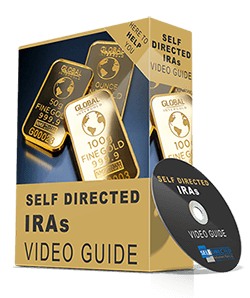Planning for retirement means making smart choices about where and how you save your money. Two of the most popular tools are the 401(k) plan and IRA (Individual Retirement Accounts). While both offer tax advantages and long-term growth potential, they come with different rules, benefits, and limitations.
This article breaks down the topic of 401(k) vs. IRA. It explores how both of these incredibly fruitful investment options work and how you can choose the right one for your financial future.
What Is a 401(k) & How Does It Work?
It is an employer-sponsored retirement savings plan where eligible employees can contribute towards their retirement savings on either an after-tax or pre-tax basis. The employer offering a 401(k) may choose to make a matching contribution to the plan or add a profit-sharing feature.
The biggest benefit of investing in a 401(k) instead of an IRA is the high contribution limit.
What Is an IRA & How Does It Work?
An IRA is an individual retirement savings account that offers pre-tax or after-tax advantages. Every IRA must have a custodian, and the choice of investments available to you will greatly depend on the custodian you choose.
There are three types of custodians:
- The first helps you establish a new self-directed IRA, but your investment options are limited to what they have to sell.
- The second one allows you to invest in anything allowed by the IRS. But, you have to run everything through them, and of course, that incurs continuing fees.
- The third is a passive custodian. They don’t have products to sell, and they let you make any alternative investment without going through them.
A 401(k) is administered by an employer, but you can set up an IRA on your own and contribute to it. For instance, if your current company does not offer a 401(k) or you are a freelancer, you have the capability of having your own personal 401(K) and an IRA.
Depending upon your MAGI (Modified Adjusted Gross Income), you are allowed to have both a 401(K) and an IRA.
401(k) vs IRA: Key Differences Between Two Tax-Advantaged Options
While both 401(k) and IRA make great options for retirement savings, it is important to know the key differences between them to determine which best suits your unique situation
| Eligibility | Anyone who is employed in an organization where the employer or sole proprietor offers a 401(k) plan | Anyone who is below the age of 70 ½ for Traditional IRA’s, not Roth, and has earned income can contribute to an individual retirement account. |
| Subjected Taxes | Contributions are tax deductible unless it is a Roth contribution.
Traditional distributions will be treated as ordinary income. Roth distributions are not taxed if the rules are met |
Contributions are tax deductible unless it is Roth IRA. Traditional distributions well be treated as ordinary income. Roth distributions are not taxed if the rules are met. |
| Flexibility | You cannot contribute to your 401(k) plan after the completion of employment. | Your 401(k) can be rolled over to an IRA and you can continue to invest. |
| Contribution Limits (Basic) | $23,500 | $7,000 |
| Catch-up Contribution Limits
(Age 50 and above) |
$7,500 | $1,000 |
How to Choose Between an IRA and a 401(k)?
Your decision depends on your employment situation and financial goals. Here are two common scenarios:
-
If Your Employer Offers a 401(k) With a Match
Always take advantage of the match. It’s free money. Contribute at least enough to get the full match, then consider opening an IRA if you want more investment options or plan to save more.
-
If Your Employer Doesn’t Offer a 401(k)
In this case, opening an IRA is a great first step. You get tax benefits and investment flexibility. Consider a Roth IRA if you expect to be in a higher tax bracket later.
Can You Roll a 401(k) Into an IRA or Vice Versa?
Yes, you can roll over a 401(k) into an IRA, especially after leaving your job. This is a common way to consolidate retirement accounts and gain greater investment control.
401(k) rollover to IRA allows you to maintain tax-deferred growth and avoid penalties if done correctly. However, what you must remember is that you generally can’t roll an IRA into a 401(k) unless the 401(k) plan accepts it.
Read more about 401(k) Rollover to IRA.
FAQs
Can you contribute to an IRA and a 401(k) both?
Yes, you can contribute to both in the same year. However, your ability to deduct traditional IRA contributions may be limited depending on your income and participation in a workplace plan.
Can you roll a 401(k) into an IRA penalty-free?
Yes. Direct rollovers from a 401(k) to an IRA are tax-free and penalty-free, as long as the funds are transferred properly.
If you are unsure which one to choose or how to roll over your existing funds, talk to the experts at Self-Directed Retirement Plans LLC. We’re here to help you build the retirement you deserve.
Choosing between a 401(k) and an IRA depends on your current job situation, investment preferences, and long-term retirement goals. Both accounts offer unique benefits! In fact, often, using both together creates the strongest savings strategy.



